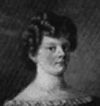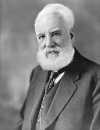
Source: The Free Dictionary

Source: The Free Dictionary
 There is no religion without love, and people may talk as much as they like about their religion, but if it does not teach them to be good and kind to man and beast, it is all a sham. Discuss
There is no religion without love, and people may talk as much as they like about their religion, but if it does not teach them to be good and kind to man and beast, it is all a sham. Discuss
Source: The Free Dictionary
Definition: (noun) One who has the power and position to rule over others.
Synonyms: dictator.
Usage: She was a potentate in her home, all her relatives being too cowed to protest her decisions.
Discuss
Source: The Free Dictionary
 Though the April Uprising of 1876, a Bulgarian revolt against the perceived Ottoman oppression, failed as a revolution, it succeeded in raising international support for the Bulgarian plight. News of atrocities committed by Ottoman troops suppressing the uprising quickly spread to the international community, and Russia soon declared war on the Ottomans. The subsequent Treaty of San Stefano created a large autonomous Bulgaria within the Ottoman Empire, but it was later revised. Why? Discuss
Though the April Uprising of 1876, a Bulgarian revolt against the perceived Ottoman oppression, failed as a revolution, it succeeded in raising international support for the Bulgarian plight. News of atrocities committed by Ottoman troops suppressing the uprising quickly spread to the international community, and Russia soon declared war on the Ottomans. The subsequent Treaty of San Stefano created a large autonomous Bulgaria within the Ottoman Empire, but it was later revised. Why? Discuss
Source: The Free Dictionary
 March 3 is celebrated as a national holiday in Malawi honoring the political heroes who gave their lives in the struggle against British colonialism. On March 3, 1959, British forces arrested prominent Malawian nationalists and other dissidents, precipitating the deaths of more than 20 demonstrators. In total, 51 were killed, over 1,300 were detained, and many more were wounded. Malawians often attend church services on March 3 and offer prayers for departed freedom fighters. In addition, Radio Malawi plays tribute music to remember those martyred during the 1959 crisis in Central Africa. Discuss
March 3 is celebrated as a national holiday in Malawi honoring the political heroes who gave their lives in the struggle against British colonialism. On March 3, 1959, British forces arrested prominent Malawian nationalists and other dissidents, precipitating the deaths of more than 20 demonstrators. In total, 51 were killed, over 1,300 were detained, and many more were wounded. Malawians often attend church services on March 3 and offer prayers for departed freedom fighters. In addition, Radio Malawi plays tribute music to remember those martyred during the 1959 crisis in Central Africa. Discuss
Source: The Free Dictionary
 Bell was a scientist and inventor. He patented the telephone in 1876 and months later sent his now-famous telephone message to his assistant, Thomas A. Watson: “Mr. Watson, come here; I want to see you.” Bell also invented a device that transmitted sound in rays of light, a machine that tested hearing and detected auditory deficiencies, and an apparatus capable of locating metallic objects in the human body. This last device was hurriedly assembled in an attempt to find a bullet in whose body? Discuss
Bell was a scientist and inventor. He patented the telephone in 1876 and months later sent his now-famous telephone message to his assistant, Thomas A. Watson: “Mr. Watson, come here; I want to see you.” Bell also invented a device that transmitted sound in rays of light, a machine that tested hearing and detected auditory deficiencies, and an apparatus capable of locating metallic objects in the human body. This last device was hurriedly assembled in an attempt to find a bullet in whose body? Discuss
Source: The Free Dictionary
 The Temple of Artemis was a large Greek temple at Ephesus that was said to be one of the seven wonders of the ancient world. The temple, dedicated to Artemis, the virgin goddess of the hunt and the moon and twin sister of Apollo, was a 120-year project started by Croesus of Lydia and completed around 550 BCE. The temple was destroyed and rebuilt numerous times. It was first destroyed in 356 BCE in an act of arson committed by Herostratus. What was his motivation? Discuss
The Temple of Artemis was a large Greek temple at Ephesus that was said to be one of the seven wonders of the ancient world. The temple, dedicated to Artemis, the virgin goddess of the hunt and the moon and twin sister of Apollo, was a 120-year project started by Croesus of Lydia and completed around 550 BCE. The temple was destroyed and rebuilt numerous times. It was first destroyed in 356 BCE in an act of arson committed by Herostratus. What was his motivation? Discuss
Source: The Free Dictionary
Definition: (adjective) Being an imitation or a substitute, usually an inferior one; artificial.
Synonyms: imitation.
Usage: He was fairly sure that no coffee beans had been involved in its production, but he was tired enough to drink the ersatz coffee anyway.
Discuss
Source: The Free Dictionary
 Recognized as one of the National Basketball Association’s greatest players of all time, Wilt Chamberlain led the league in scoring for 7 seasons and in rebounding 11 times, was named the NBA’s Most Valuable Player 4 times, and was elected to basketball’s Hall of Fame. However, he is perhaps best known for being the only player in league history to score 100 points in a single game—a feat he achieved while playing for the Philadelphia Warriors. How many total points were scored in that game? Discuss
Recognized as one of the National Basketball Association’s greatest players of all time, Wilt Chamberlain led the league in scoring for 7 seasons and in rebounding 11 times, was named the NBA’s Most Valuable Player 4 times, and was elected to basketball’s Hall of Fame. However, he is perhaps best known for being the only player in league history to score 100 points in a single game—a feat he achieved while playing for the Philadelphia Warriors. How many total points were scored in that game? Discuss
Source: The Free Dictionary
 The Union of Myanmar, known as Burma until 1989, is in southeast Asia. Myanmar’s predominant industry is agriculture, and, at one point, it was the biggest exporter of rice in Asia, but now its line of agricultural products is more diverse. The country could not support these agricultural activities without the peasant workers, and to show their appreciation for the peasants’ contribution, the country has declared March 2 Peasants’ Day. It is a national holiday. It was also on this day in 1962 that Burmese General Ne Win led the military coup. The country holds parades on this day to honor him. Discuss
The Union of Myanmar, known as Burma until 1989, is in southeast Asia. Myanmar’s predominant industry is agriculture, and, at one point, it was the biggest exporter of rice in Asia, but now its line of agricultural products is more diverse. The country could not support these agricultural activities without the peasant workers, and to show their appreciation for the peasants’ contribution, the country has declared March 2 Peasants’ Day. It is a national holiday. It was also on this day in 1962 that Burmese General Ne Win led the military coup. The country holds parades on this day to honor him. Discuss
Source: The Free Dictionary